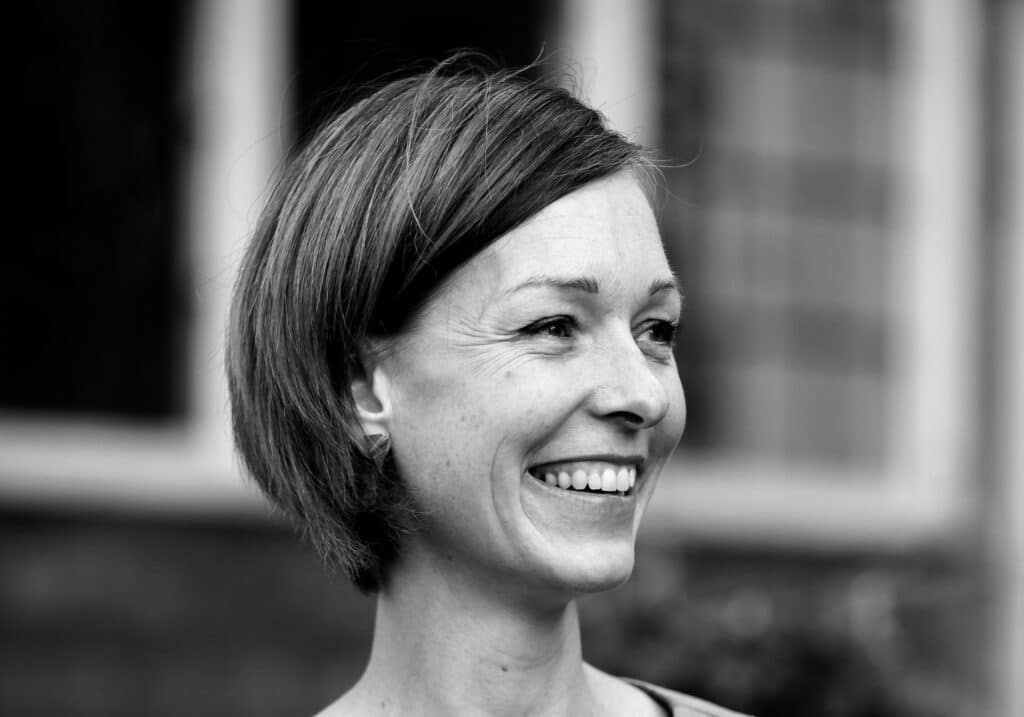Pushing Boundaries
A conference of community-driven research and innovation
This event has now passed.
//
On 10 June 2025 at The British Library, The Young Foundation and UKRI brought together pioneers who are transforming research and innovation through community-driven approaches.
The conference explored how communities are reshaping what research and innovation can be. Attendees discovered inspiring stories and real-world learnings from UKRI-funded projects and beyond, spanning different fields, sectors, and ways of working. Together, we explored how to push boundaries to create better opportunities for everyone to participate in research and innovation, and spark ideas for future collaboration.
The event itself was designed to include hands-on experiences – and attendees had the opportunity to contribute to a collaborative research inquiry, working together to break down barriers and create meaningful change.
Explore the agendaCatch up on content from the conference
Meet the speakers
Community voice
We worked with community researchers and members to help steer the event experience, guide decision-making, and hold organisers and speakers accountable to centring community voice. Meet the accountability group:
FAQs
How do I get there?
The British Library is at 96 Euston Road, London, NW1 2DB. The conference will be held in the Knowledge Centre, which is located on the main forecourt outside the main British Library building.
Who is the event for?
Anyone who is curious about or involved in community-driven research and innovation, including (but not limited to):
- Funders and commissioners of community-driven research and innovation
- Community members who have experience of community research or would like to be involved in community research, including community researchers, peer researchers, youth researchers and citizen scientists
- Community organisations, trusts and foundations
- People who work in policymaking, central and local government
- Practitioners of community-driven research and innovation – including academics, researchers, public engagement professionals and knowledge brokers
Across these perspectives, we hope to bring together people who share an understanding of the value of community-driven research and innovation – and want to explore barriers and enablers for change.
What can I expect?
An inspiring and thought-provoking day of discussions and workshops – with opportunities to learn, share and collaborate with a varied group of people across the R&I sector and UK communities. Speakers and sessions will start to be announced shortly.
Registration will begin at 9.30am to start at 10am. The main programme will end at 4.15pm with optional networking until 4.45pm. Refreshments and a light lunch will be provided. The venue will endeavour to accommodate any dietary requirements shared at registration.
Is it free to attend?
The event is free to attend, but we would welcome a small donation to cover contingency plans, for example if attendees drop out on the day. We suggest an optional £5 donation. A small number of bursaries are available.
Are there bursaries available?
We are committed to ensuring the event is accessible to as many people as possible from across research and innovation. However, we recognise that participating in an in-person event can incur further expenses for attendees – and not everyone will have access to funding to cover these costs. We are therefore pleased to be able to offer a limited number of bursaries to support the attendance of up to 20 community members, freelancers and representatives of community-based organisations. Bursary applications are now closed. Please read the bursary policy for further information.
Is the venue accessible?
When you register, please let us know about any adjustments we can make to help with accessibility. If we can make your experience more comfortable by arranging wheelchair spaces, induction loops, a BSL interpreter or by making any other adjustment that will allow you to enjoy the event please let us know when you complete your registration. Further information about the venue is below.
Blue Badge Parking: Parking bays for Blue Badge holders can be found on Ossulston Street. The Ossulston Street entrance is fully ramped and is approximately 100 metres from the main entrance. There are also public metered bays in this area.
Step-free access and seating: Across the British Library, all floors have step-free access and seating is available for visitors around the building. Entrances to the Knowledge Centre have button-assisted opening.
Accessible toilets: Accessible toilets can be found on all floors. Gender neutral toilets are available in the main library. The nearest Changing Places toilet is at King’s Cross station.
Wheelchairs: Manual wheelchairs can be borrowed free of charge, subject to availability. Please ask a member of staff on arrival. Please note that assistance cannot be provided in the use of these wheelchairs.
Guide and assistance dogs: We welcome guide dogs and assistance dogs. Dog bowls are available at the Information Desk, Reading Rooms and all cafés at the British Library.
Hearing support systems: Hearing induction loops are installed in the Knowledge Centre breakout rooms (set up on request) and the Piggott Theatre, which also operates the Sennheiser MobileConnect system. The Sennheiser MobileConnect system is a digital hearing system that gives users individual control over their feed by broadcasting to an app. The app is available on both Android and iOS devices. To use the system, download the app to your device. If you don’t have a smartphone, you can borrow one of three pre-loaded devices on arrival at the Knowledge Centre. Just speak to a member of staff.
Prayer and quiet space: A Multi-Faith Prayer and Contemplation Space is available in the main library. Please speak to a member of staff is you would also like access to a quiet space within the Knowledge Centre.







































